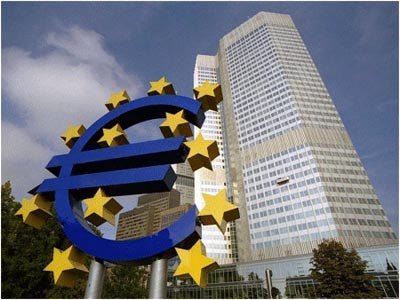European inflation falls as oil price slides
 Berlin - European inflation edged down in October, data released Friday showed, as a result helping to pave the way for the European Central Bank to deliver another hefty rate cut next week.
Berlin - European inflation edged down in October, data released Friday showed, as a result helping to pave the way for the European Central Bank to deliver another hefty rate cut next week.
Based on its preliminary estimate, the European Union's statistics office said annual inflation in the 15-member eurozone edged down to 3.2 per cent this month from 3.6 per cent in September. Analysts had also expected inflation to come in at 3.2 per cent in October.
Another reduction in borrowing costs by the ECB would also form part of a new wave of rate cuts by the world's leading central banks with the Bank of Japan trimming rates on Friday from 0.5 per cent to 0.3 per cent to try to ward off the threat posed by a global economic downturn.
This came in the wake of the US Federal along with the monetary authorities in Norway and China reducing the cost of money earlier in the week.
The Bank of England as well as the monetary authorities in Switzerland are also expected to follow up this week's rate cut moves.
The drop in eurozone inflation follows the recent fall in energy costs, with oil prices hovering at about 63 dollars a barrel in European trading Friday on the prospects that slowing global economic growth will curb demand. In July, oil prices were heading towards 150 dollars a barrel.
Analysts have predicted that the drop in energy prices and slowing global growth could result in further falls in inflation in the coming months.
In harmonized European terms, annual German inflation fell from 3 per cent in September to 2.5 per cent this month, its lowest in more than a year, data also released this week showed.
ECB chief Jean Claude Trichet signalled Monday that the bank's 21- head rate-setting council might deliver another cut in borrowing costs at its meeting next month with analysts speculating that further reductions could be in the pipeline.
"I consider possible that the governing council will decrease interest rates once again at its next meeting on November 6," said Trichet.
"It is not a certainty, it is a possibility," he said.
Analysts believe the grim economic outlook combined with dwindling inflation gives the ECB scope to follow up the 50-basis cut it delivered in July as part of a coordinated action by the world's leading central banks with another 50-basis points cut next Thursday.
Indeed, since July the economic climate in the eurozone has continued to worsen with economic confidence in currency bloc plummeting in October to its lowest level in 15 years, a key survey released Thursday said.
The ECB's rate reduction in July lowered the cost of borrowing in the eurozone to 3.75 per cent. (dpa)